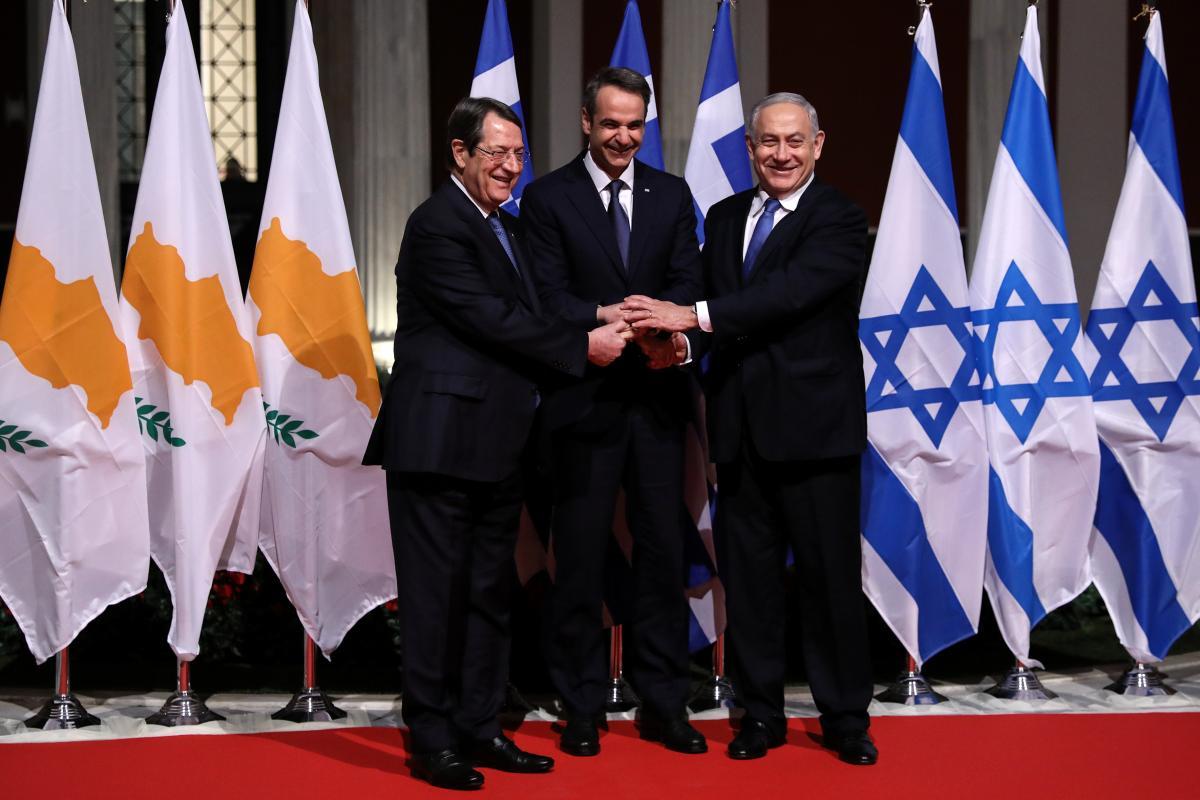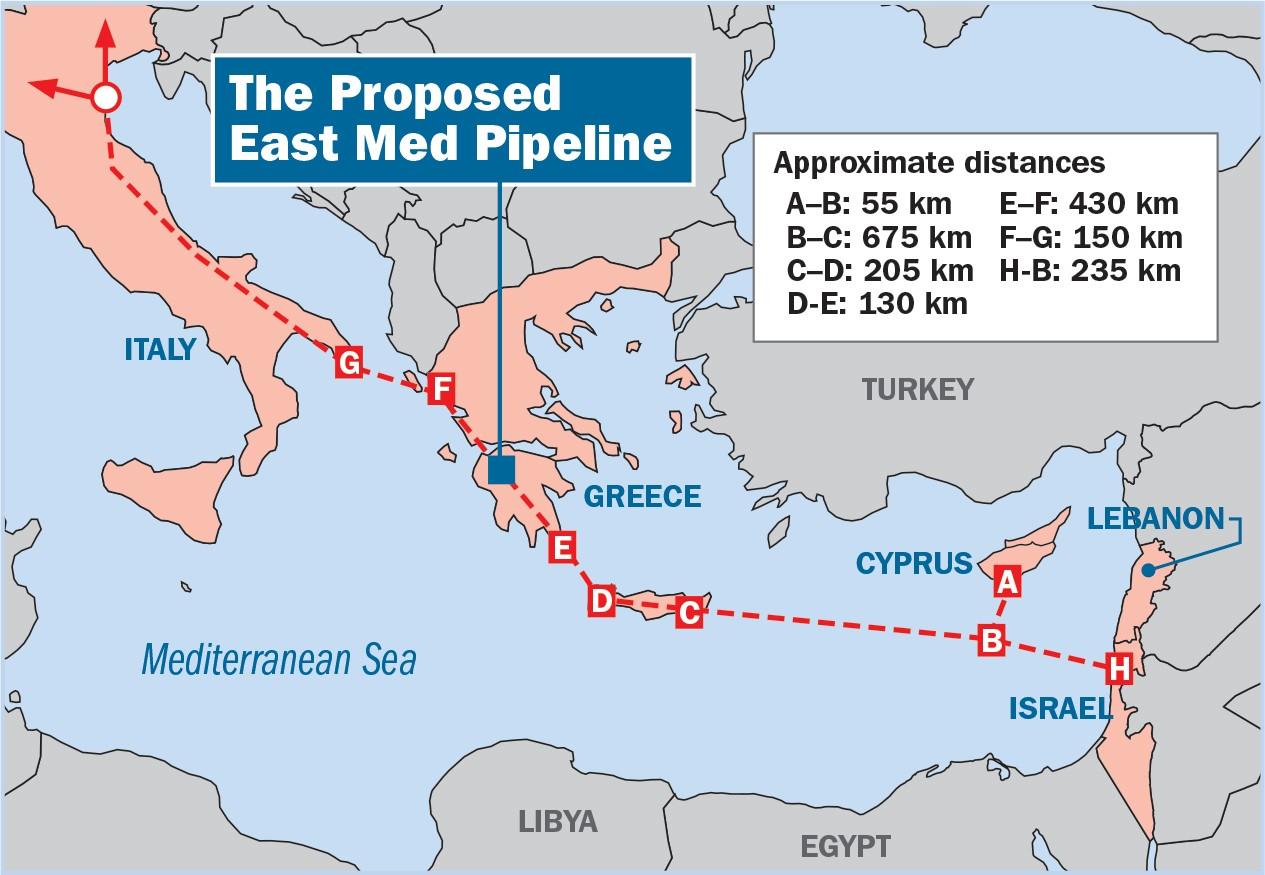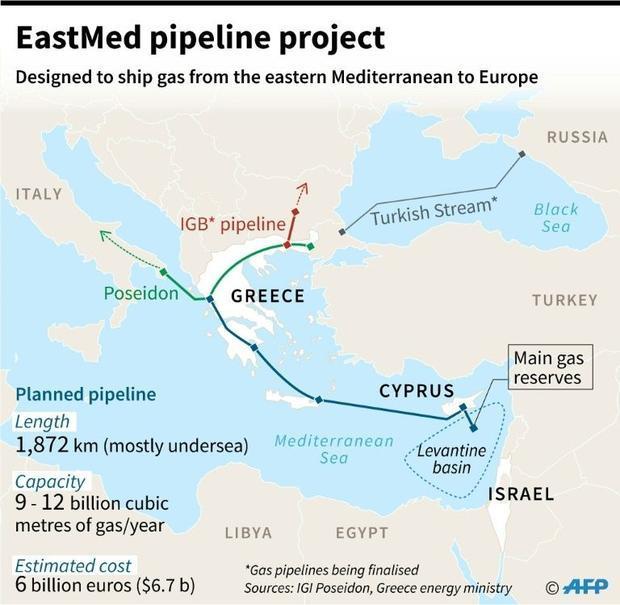Greece, Israel & Cyprus Sign Landmark EastMed Gas Pipeline Deal Despite Turkey’s Wrath
Long in the works, but coming at a geopolitically sensitive moment for the region given expanding Turkish maritime claims, the East Med gas pipeline deal was signed this week between the countries of Greece, Cyprus and Israel.
The three signed the deal on Thursday to build a 1,900 km (1,180 mile) subsea pipeline to transport supplies from the rapidly advancing gas fields of the eastern Mediterranean to Europe.
A massive undertaking to supply energy-hungry Europe, the East Med pipeline project was first proposed by Greek energy minister Yannis Maniatis in 2014, and has since been hailed as “the longest and deepest gas pipeline in the world”. At an initial estimated cost of $6-7 billion, it will be financed by “private companies and institutional lenders,” according to prior Israeli Energy Ministry statements.

The underground, sub-sea pipeline is proposed to connect Israel, via Cyprus, to Greece and Italy, in a massive construction project estimated to take five or six years to complete, and which once online is expected initially pump 10 billion cubic meters of gas per year.
The energy ministers of Greece, Israel and Cyprus – Kostis Hatzidakis, Yuval Steinitz and Yiorgos Lakkotrypis – attended a signing ceremony in Athens which finalized the project’s moving forward, according to Reuters.
Predictably, Turkey is actively opposing the project, given its own expanding oil and gas exploration claims which have now completely surrounded Cyprus (using the excuse of “rights” based on the contested so-called Turkish Republic of Northern Cyprus) and have even cut into Greece’s Exclusive Economic Zone as well. Per Reuters:
Although Turkey opposes the project, the countries aim to reach a final investment decision by 2022 and have the pipeline completed by 2025 to help Europe diversify its energy resources.
Last month a Turkish official said there was no need to build the EastMed pipeline because the trans-Anatolian pipeline already existed.
Turkey’s Foreign Ministry complained this week that the East Med pipeline “ignored the rights of Turkey and Turkish Cypriots” and thus would be doomed to failure.

“The most economical and secure route to utilize the natural resources in the eastern Mediterranean and deliver them to consumption markets in Europe, including our country, is Turkey,” Turkish Foreign Ministry spokesman Hami Aksoy said Thursday, just as the deal was being signed in Athens.
Turkey has lately angered countries like Egypt, Greece and Cyprus over its disputed maritime boundary agreement with Libya, which many see as a big and illegal maritime grab for drilling rights in the southern Mediterranean.
Cypriot President Nicos Anastasiades shot back, however, saying “It (the agreement) … supports a common aim for peace, security and stability in the particularly vulnerable region of the Eastern Mediterranean,” underscoring that it’s actually good for the region’s security in a historically restive area where neighboring countries rarely get along.

The transformation of the eastern Mediterranean into an “energy hotspot” could have huge global geopolitical implications, especially given that currently the EU relies on Russia for a third of its gas.
It’s especially southeast Europe that’s been entirely reliant on Russian gas, given its lack of infrastructure. Thus Europe has greeted the project as part of a broader push for “energy diversity” that such other projects as the Nord Stream 2 Russia-Germany pipeline is meant to satisfy as well.
Tyler Durden
Sat, 01/04/2020 – 09:55
via ZeroHedge News https://ift.tt/37Bc3uM Tyler Durden